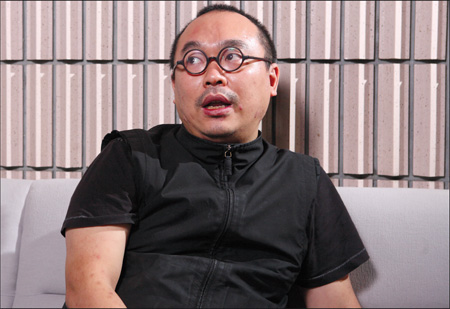Six industries can enrich quality of living
Updated: 2009-11-13 08:39
(HK Edition)
|
|||||||
|
Woo says the six industries are knowledge-based industries that will accomplish over time and take Hong Kong forward. |
Mathias Woo was a member of the Task Force on Economic Challenges, chaired by Chief Executive Donald Tsang, that came up with the idea of six key economic areas, after the outbreak of the financial crisis.
The chief executive pledged to follow up by providing a clear policy direction for the six industries in his 2009-10 policy address.
"The six economic areas are well-chosen ones that have had support of the members over discussions for months," he told China Daily. "They are the kinds of things that will accomplish a lot over a considerable period of time. They are not money-spinning industries and neither should they be developed for the sake of making money."
It seems a good idea that the government is releasing over 1,500 old industrial buildings for use by the six industries. But Woo worried that in the end, it would only be the wealthy consortia that secure the ownership of the industrial buildings and redevelop them as hotels or other commercial facilities, rather than sites for the cultural and creative industries.
"The six industries are knowledge-based industries that involve education and technology as the tools to nurture talents and take the industries forward, but the government is no more than providing land for construction of universities and hospitals," Woo commented.
In view of the aging population problem, the government should start planning for medical service needs for the elderly from now.
On the environmental protection side, he suggested the government promote green transport by encouraging use of electricity-driven vehicles in certain districts like the Tin Shui Wai and Tseung Kwan O on a pilot basis. At the same time, the government should urge the bus companies to use more electricity-driven vehicles and encourage people to make greater use of bicycles.
As for the rural villages, the residents should be encouraged to use solar-power to fuel their water heaters.
On solid waste management, he noted that new technology to treat and recycle food waste is now available, and such recycling services are being offered in Taiwan.
Woo, a well-known culturist in Hong Kong, further said it is only when the citizens are living in comfort will it be easy to promote the six industries and enrich the quality of their way of living.
Yet in Hong Kong, people are not living in comfort because the living area of the people is very small and again, people are busying themselves in making quick money.
"People are not living in comfort because the housing prices are very high, and many are laboring themselves by trading their houses for bigger ones as an investment tool," he said. "The government is treating the six industries as an antidote that yields immediate effect. In fact they are not antidotes, but traditional Chinese medicine that nurtures one's health over time."
On the cultural and innovative industries, he said Singapore, South Korea, Japan and Taiwan are doing much better in this arena.
For example, South Korea has developed international brand names like Samsung and LG, Taiwan boasts Acer and Benq and the mainland has Lenovo, but Hong Kong lacks its own international brand names.
Referring to the South Korea example, he said the country has spent 20 years to nurture young designers to blend technology with aesthetics in the research and development of new products.
He further quoted Australia as an example. In the 1990s, Australia published a research report entitled Creative Nation that aimed to develop the country into a creative country.
One of the key proposals of the report was classification of different types of libraries alongside a policy to encourage lifelong learning, thus transforming Australia into a learning-based society.
(HK Edition 11/13/2009 page4)
